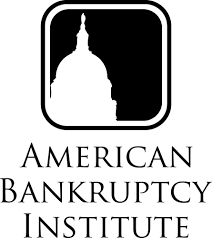|
There are many misconceptions about bankruptcy and credit, so let's take a look at the impact that bankruptcy can have. Filing a Chapter 7 will remain on your credit report for 10 years, just like a foreclosure. A Chapter 13 will remain on your credit for 7 years. But does this mean you will experience low credit scores after filing until the bankruptcy has been removed? The answer is that it depends. Credit reporting and scores are based on a myriad of issues, such as your debt-to-income ratio (DTIR), which is another way of asking how much debt you have to service compared to your income. If you owe $1000 for a credit card, but you only make $5000 a year, that's a problem. But if you make $500,000 a year, then your DTIR is going to be fantastic. Another issue is, how have you performed in making debt payments? You can improve your score in this regard after bankruptcy filing by opening a secured credit card, or staying current on a car payment, or house payment. Other items which may affect your credit score are the number of creditors you owe and number of times an agency has looked at your credit report. In some ways, filing bankruptcy will help because it will reduce the amount of debt that you service, improving your DTIR.
But the real question to ask is whether your credit score matters, or how much it matters. If you're older, and have a house and car (or two), your credit score may be less important if you're not planning to borrow to purchase big ticket items in the near future. If you're younger and want to buy a home in the next 5 years, that may be difficult or your interest rate may be high, if you file a bankruptcy. While the purchase of a car will be easier, and most people with a job can get a loan after bankruptcy, your interest rate will almost always be higher, perhaps in the 20s. So what we are really asking is (a) will you still qualify for credit and (b) what will the cost of that credit be? The answer to the first is that, for small balance credit cards or secured credit cards, and vehicles, as long as you're employed, almost certainly, yes. The answer to the second is that the cost of borrowing will be higher. But assuming you've discharged $50,000 in unsecured debt, the cost of borrowing for a $30,000 car will not reach those levels, even above 20% interest, so the benefits for filing exceed the risks. There is a 'humiliation' or 'emotional' factor to filing in that some people value themselves based on their credit scores. This is not a rational reason not to file, or to judge oneself. Unless they pay to run a background check, your friends, family and neighbors won't know whether you filed, and they cannot simply look at you and figure out your credit score. Moreover, if you're saving thousands of dollars by filing, that's much more important than having a high credit score. But the biggest problem with a credit score is that, in some cases, it's a reason to put yourself back in harm's way - by borrowing instead of saving. That's why if you're going to judge yourself on anything, it shouldn't be by your ability to borrow at low interest rates, it should be by your ability to save and invest.
0 Comments
Your comment will be posted after it is approved.
Leave a Reply. |
AuthorHi! I'm American Board of Certification board-certified attorney Jesse Sweeney. I've been practicing bankruptcy for over 16 years and I thought this would be a great way to give you some insight into the process in a way that you can understand, without all the lawyer-speak that can make things confusing. Let me know if you have questions! Archives
May 2023
Categories |
 RSS Feed
RSS Feed


